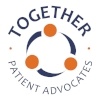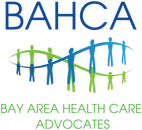
Your doctor is prescribing a new medication for you to take. What do you need to know about this medication before taking it? When I was working as a physician, I had a quick synopsis I reviewed with my patients about their new prescriptions. As a patient now, I find that not all physicians cover these topics when prescribing a new drug. On disease-specific Facebook groups, I see numerous posts by members asking other patients what to expect; ideally, these questions should be answered by your physician or pharmacist. Antidotal side effects shared by others may indeed be coincidental and not related to the medication at all. What do you need to ask when you're receiving a new prescription?
- Why is this medication being prescribed? Are there other options? What happens if I don’t take the medication? Say you've just been prescribed a medication for high cholesterol. You talk to a friend about the statin medication and she suggests you'd be better off taking red yeast rice as a "natural" method of lowering your cholesterol. Fortunately, you've already discussed options with your doctor and know that red yeast rice has similar side effects to statins and is more difficult to titrate to effect as supplements are not FDA approved and can contain wildly variable amounts of active ingredients. You've also discussed not treating your high cholesterol with medication and understand that while diet and exercise will help lower your cholesterol, your particular problem is genetic and diet and exercise alone won't lower your levels enough to reduce your risk of heart attack.
- What are the common side effects and what are the rare serious side effects? What should I do if I experience side effects? A common prescription for high blood pressure, diabetes and heart disease is an ACE inhibitor like lisinopril. I reviewed with my patients that ACE inhibitors commonly cause a dry cough, which can start anywhere from weeks to months after taking it. If it occurred, they should notify me if it was bothersome so that we could change their medication. Rarely, it could cause angioedema, a life-threatening swelling of the airway. Should they develop swelling of the lips, throat or mouth, they should immediately stop the medication and seek immediate medical attention. I learned to include this rare side effect in my discussion after caring for several patients in the ICU during residency who had noticed swelling of their lips for days but hadn't sought medical attention until the swelling worsened such that they couldn't breath. Preventive guidance in this case could have prevented a life-threatening reaction.
- How long should I take the medication? How long should I take it if it doesn’t help my symptoms? Too often, patients stop medications when they feel better--if their medication is an antibiotic, early cessation can cause drug resistance. High blood pressure pills need to be continued until they are stopped by the doctor.
- When do I need to follow-up? Is follow-up needed before a refill? Do labs need to be checked? Generally, I prescribed enough refills to cover my patients until a follow-up was needed. For example, if I was prescribing a medication for diabetes, I entered enough refills to cover until the next lab work or follow-up was needed. This allowed me to be prompted to bring a patient in in the event that they forgot follow-up was needed.
- Does my medication need to be stored at a certain temperature? This is a great question to ask the pharmacist when you pick up your medication.
- What time of day should I take my medication and does it need to be taken with food? For example, thyroid medications should be taken every morning 30 minutes before eating. These directions should be included on the bottle, but if they aren't, be sure to check with the pharmacist.
- Does my new prescription interact with any of my other medications or supplements? If your medications are all prescribed through the same electronic medical record (EMR), it will usually cross-check prescriptions for interactions. If not, it's extra important to check with your doctor or pharmacist. Make sure they know all supplements, herbs and over-the-counter medications you are taking as well as some that are commonly used will interact with prescriptions.
- Lastly, if cost is a concern (always!), it's helpful to know where you can get your medication most cheaply. Walmart has a $4 list of medications you can check. Some pharmacies will match their prices. GoodRx is helpful for finding coupons and lowest cash prices. While it's helpful to get all prescriptions at the same pharmacy so that interactions can be automatically assessed, sometimes it's just not practical when one prescription may cost $100 less somewhere else.
These eight basic questions will enable you to be better informed about your prescriptions, anticipate side effects and ensure appropriate follow-up. If you have additional suggestions, please submit a comment below or send me an email! Most patient advocates will happily provide education about your medications, check your prescriptions for interactions and help you find the lowest prices on your prescriptions. You can learn more about my work as a patient advocate here or search for a patient advocate in your area here or here.



.gif?width=200&name=NAHAC-Member-Badge200x112+(1).gif)


